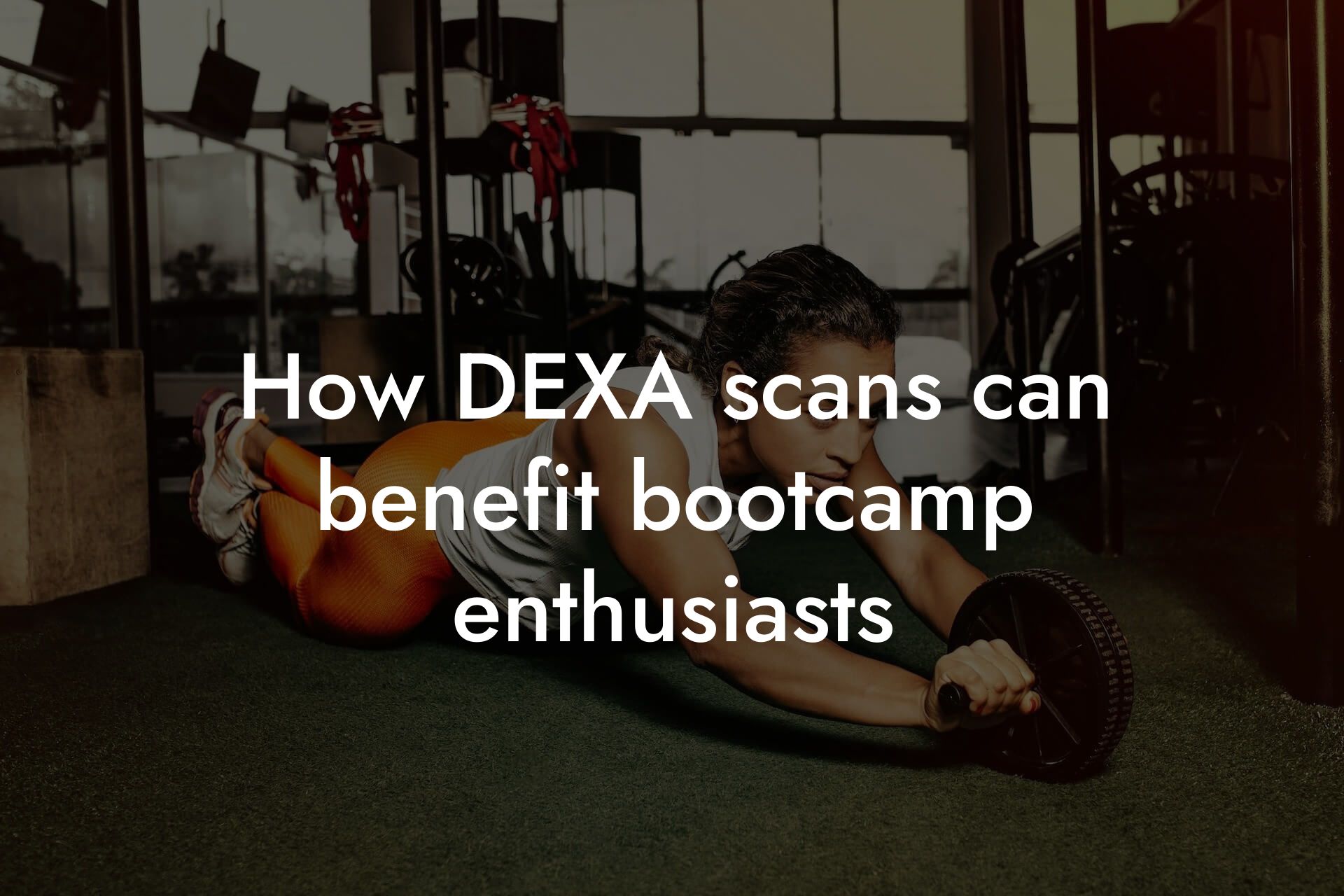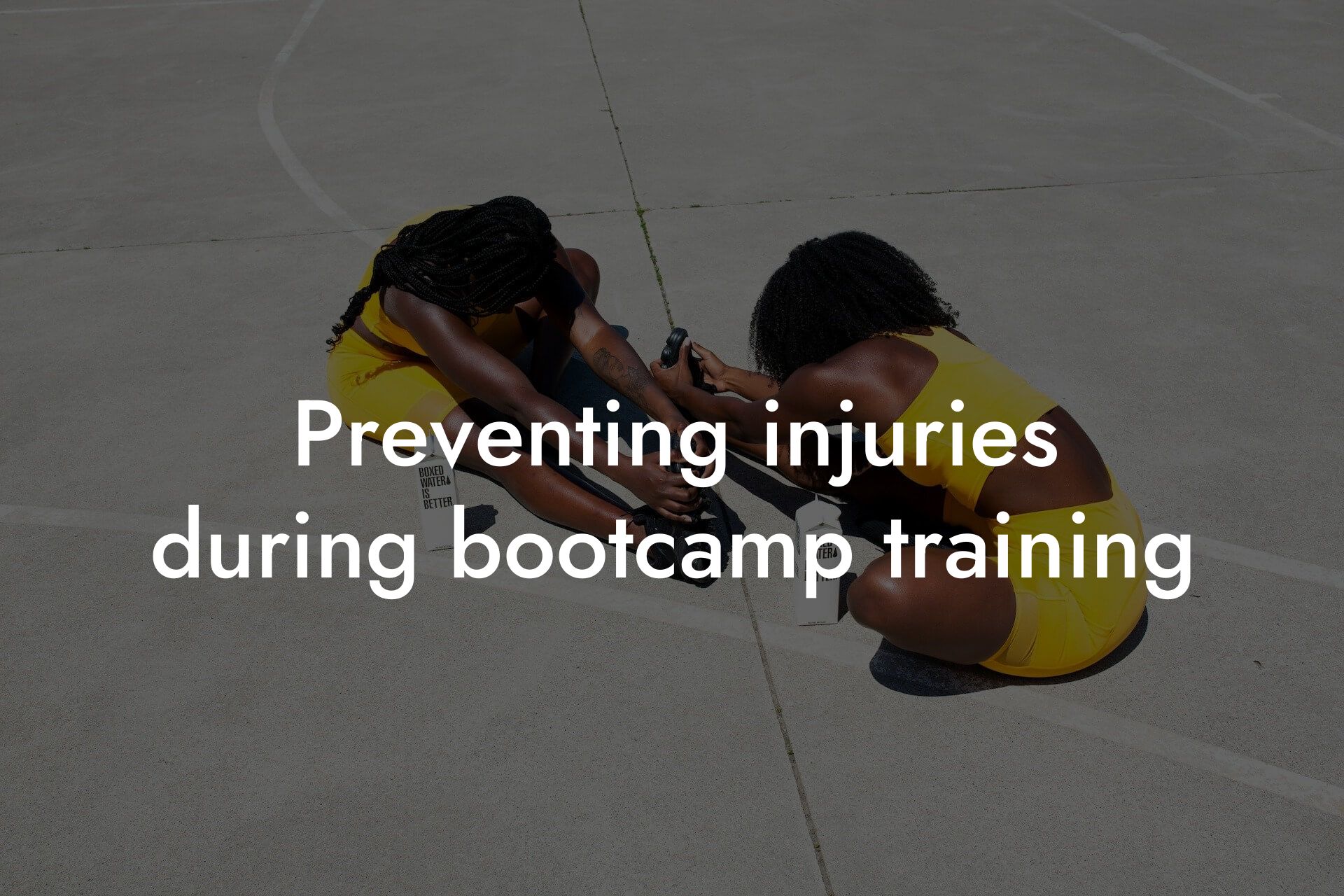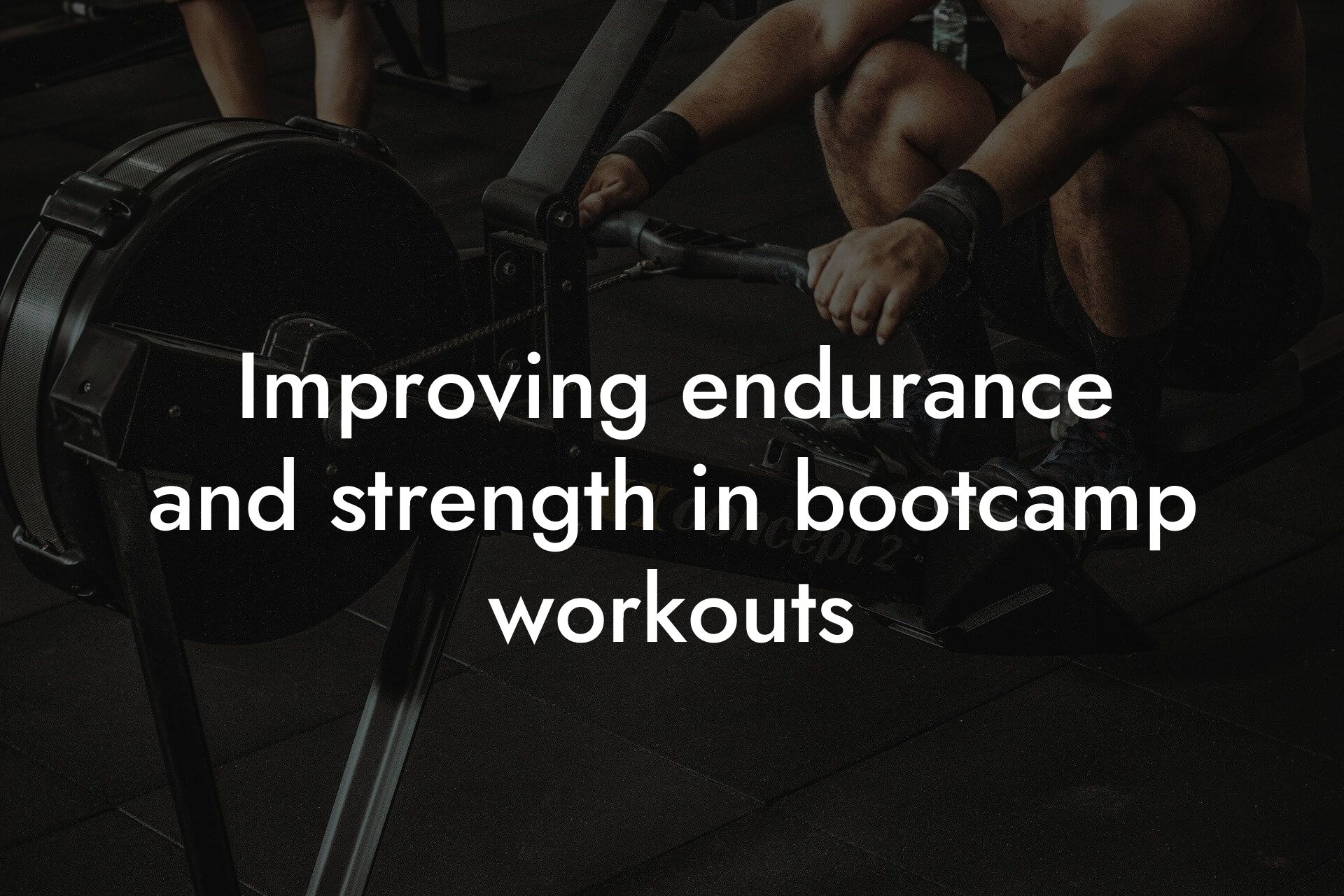As a high-earning professional, you understand the importance of maintaining a healthy and fit physique. You likely invest a significant amount of time and effort into your fitness routine, whether it's through bootcamp-style workouts or other forms of exercise. However, have you ever stopped to consider the impact that your fitness routine may be having on your bone density? In this article, we'll explore the importance of bone density in bootcamp fitness and provide you with the information you need to take your fitness to the next level.
Table of Contents
- What is Bone Density?
- Why is Bone Density Important in Bootcamp Fitness?
- The Risks of Low Bone Density
- How Does Bootcamp Fitness Affect Bone Density?
- How to Improve Bone Density through Bootcamp Fitness
- How to Monitor Bone Density in Bootcamp Fitness
- Take the Next Step with Tano Performance Group
- Frequently Asked Questions
What is Bone Density?
Bone density refers to the measure of how dense and strong your bones are. It's an important indicator of overall health, as strong bones are better able to support your body's weight and withstand the stresses and strains of daily life. Bone density is typically measured using a DEXA (Dual-Energy X-ray Absorptiometry) scan, which uses low-level X-rays to measure the density of your bones.
Why is Bone Density Important in Bootcamp Fitness?
Bone density is particularly important in bootcamp fitness because high-impact exercises, such as those often found in bootcamp-style workouts, can have a significant impact on your bones. While regular exercise is essential for building strong bones, high-impact exercises can also increase the risk of bone fractures and osteoporosis if not done properly. By monitoring your bone density, you can ensure that your fitness routine is having a positive impact on your overall health.
The Risks of Low Bone Density
Low bone density can have serious consequences, particularly as you age. Osteoporosis, a condition characterized by brittle and porous bones, is a major risk factor for bone fractures. In fact, according to the National Osteoporosis Foundation, osteoporosis affects over 54 million Americans, with one in two women and one in four men over the age of 50 experiencing an osteoporosis-related fracture. Additionally, low bone density can also increase the risk of other health problems, such as back pain, loss of height, and even dementia.
How Does Bootcamp Fitness Affect Bone Density?
Bootcamp-style workouts, which often involve high-impact exercises such as jumping, running, and weightlifting, can have both positive and negative effects on bone density. On the one hand, regular exercise can help to build strong bones by stimulating bone growth and increasing bone density. On the other hand, high-impact exercises can also increase the risk of bone fractures and osteoporosis if not done properly. For example, repetitive jumping and running can cause micro-fractures in the bones, which can lead to osteoporosis over time.
How to Improve Bone Density through Bootcamp Fitness
Fortunately, there are several ways to improve bone density through bootcamp fitness. One of the most effective ways is to incorporate weight-bearing exercises into your routine, such as weightlifting, squats, and lunges. These exercises help to stimulate bone growth and increase bone density. Additionally, incorporating exercises that target the core muscles, such as planks and crunches, can also help to improve bone density by strengthening the muscles that support the spine.
How to Monitor Bone Density in Bootcamp Fitness
Monitoring bone density is an essential part of any bootcamp fitness routine. One of the most effective ways to do this is through regular DEXA scans, which provide a precise measurement of bone density. At Tano Performance Group, we offer comprehensive body assessments using state-of-the-art DEXA technology. Our expert team will work with you to analyze your scan results and provide personalized recommendations for improving your bone density and overall health.
In conclusion, bone density is a critical component of overall health, particularly in bootcamp fitness. By understanding the importance of bone density and taking steps to improve it, you can ensure that your fitness routine is having a positive impact on your overall health. Remember to incorporate weight-bearing exercises into your routine, monitor your bone density through regular DEXA scans, and work with a qualified healthcare professional to develop a personalized fitness plan that meets your unique needs and goals.
Take the Next Step with Tano Performance Group
If you're ready to take your bootcamp fitness to the next level and improve your bone density, contact Tano Performance Group today. Our expert team will work with you to develop a personalized fitness plan that meets your unique needs and goals, and provides you with the information and support you need to achieve optimal health and wellness. Don't wait – take the first step towards a stronger, healthier you today!
Frequently Asked Questions
What is bone density, and why is it important in bootcamp fitness?
Bone density refers to the measure of how dense and strong your bones are. It's a crucial aspect of overall health, especially in bootcamp fitness, where high-impact exercises and intense physical activity can put additional stress on your bones. Maintaining healthy bone density is essential to prevent injuries, fractures, and osteoporosis, ensuring you can continue to perform at your best.
How does bootcamp fitness affect bone density?
Bootcamp fitness, which often involves high-impact exercises, jumping, and rapid movements, can have both positive and negative effects on bone density. On the one hand, weight-bearing exercises can help stimulate bone growth and density. On the other hand, repetitive high-impact activities can lead to bone loss and increased risk of fractures if proper precautions are not taken.
What are the risks of low bone density in bootcamp fitness?
Low bone density can lead to an increased risk of fractures, osteoporosis, and other musculoskeletal injuries, which can significantly impact your ability to participate in bootcamp fitness activities. Additionally, low bone density can also affect your overall health, making you more susceptible to conditions like osteopenia and osteoporosis.
How can I improve my bone density through bootcamp fitness?
Engage in weight-bearing exercises, such as squats, lunges, and deadlifts, which can help stimulate bone growth and density. Also, incorporate exercises that focus on strengthening your core and improving your balance, as these can help reduce the risk of falls and fractures. Furthermore, ensure you're getting adequate calcium and vitamin D through your diet or supplements to support bone health.
What role does nutrition play in maintaining healthy bone density?
Nutrition plays a critical role in maintaining healthy bone density. A diet rich in calcium, vitamin D, and other essential nutrients like vitamin K, magnesium, and phosphorus can help support bone health. Additionally, adequate protein intake is necessary for muscle growth and maintenance, which can also help improve bone density.
Can bootcamp fitness exercises be modified to accommodate low bone density?
Yes, bootcamp fitness exercises can be modified to accommodate low bone density. For example, you can replace high-impact exercises with low-impact alternatives, such as swapping jumping jacks for step-ups or using resistance bands instead of weights. It's essential to consult with a healthcare professional or fitness expert to determine the best modifications for your individual needs.
How often should I get my bone density tested?
The frequency of bone density testing depends on your age, health status, and risk factors. Generally, it's recommended to get tested every 2-3 years if you're under 65 and have no risk factors. However, if you're over 65 or have a history of osteoporosis or fractures, you may need to get tested more frequently. Consult with your healthcare provider to determine the best testing schedule for you.
What are the common risk factors for low bone density?
Common risk factors for low bone density include a family history of osteoporosis, being over 65, being female, having a small or slender build, smoking, excessive alcohol consumption, and a diet low in calcium and vitamin D. Additionally, certain medical conditions, such as rheumatoid arthritis, and medications, like corticosteroids, can also increase the risk of low bone density.
Can I still participate in bootcamp fitness if I have low bone density?
Yes, you can still participate in bootcamp fitness with low bone density, but it's essential to take necessary precautions to minimize the risk of injuries. Consult with your healthcare provider and a fitness expert to develop a customized exercise program that takes into account your bone density and health status.
How does age affect bone density?
Age is a significant factor in bone density. As we age, our bone density naturally decreases, especially after the age of 30. This decline can be accelerated by factors like menopause, hormonal changes, and a sedentary lifestyle. Engaging in regular exercise, especially weight-bearing activities, can help slow down this decline.
Can bone density be improved at any age?
Yes, bone density can be improved at any age. While it's more challenging to improve bone density as we age, it's still possible with a combination of regular exercise, a balanced diet, and adequate nutrition. Even small improvements in bone density can make a significant difference in reducing the risk of fractures and osteoporosis.
How does menopause affect bone density?
Menopause can significantly impact bone density due to the decline in estrogen levels. Estrogen helps regulate bone metabolism, and its decrease can lead to a rapid loss of bone density, especially in the first few years after menopause. Engaging in regular exercise and maintaining a balanced diet can help mitigate this decline.
What role does hormone replacement therapy (HRT) play in maintaining bone density?
HRT can help maintain bone density by replacing declining estrogen levels, especially during menopause. However, HRT should be used under the guidance of a healthcare provider, as it may have potential risks and side effects.
Can bone density be inherited?
Yes, bone density can be inherited to some extent. Research suggests that genetic factors can account for up to 80% of the variation in bone density. However, lifestyle factors like diet, exercise, and overall health can also play a significant role in determining bone density.
How does smoking affect bone density?
Smoking can significantly reduce bone density by decreasing the production of osteoblasts, the cells responsible for bone formation. Smoking also reduces blood flow to the bones, leading to a decrease in bone density and an increased risk of fractures.
Can excessive alcohol consumption affect bone density?
Yes, excessive alcohol consumption can negatively impact bone density. Alcohol can interfere with the body's ability to absorb calcium and vitamin D, leading to a decrease in bone density. Additionally, excessive alcohol consumption can increase the risk of falls and fractures, further compromising bone health.
How does body composition affect bone density?
Body composition plays a significant role in bone density. Having a higher percentage of muscle mass can help improve bone density, as muscles help stimulate bone growth and density. Conversely, having a higher percentage of body fat can negatively impact bone density, as excess fat can lead to inflammation and decreased bone health.
Can I improve my bone density through yoga or Pilates?
Yes, yoga and Pilates can help improve bone density, especially if you're new to exercise or have mobility limitations. These low-impact exercises can help improve balance, flexibility, and strength, which can reduce the risk of falls and fractures. However, it's essential to incorporate weight-bearing exercises into your routine as well to maximize bone density benefits.
How does sleep affect bone density?
Sleep plays a crucial role in bone density. During sleep, your body repairs and regenerates bone tissue, which can help improve bone density. Aim for 7-9 hours of sleep per night to support bone health.
Can stress affect bone density?
Yes, chronic stress can negatively impact bone density. Stress can increase the production of cortisol, a hormone that can interfere with bone metabolism and lead to a decrease in bone density. Engage in stress-reducing activities like meditation, deep breathing, or yoga to help manage stress levels.
How does bootcamp fitness compare to other forms of exercise for bone density?
Bootcamp fitness can be an effective way to improve bone density, especially when compared to low-impact exercises like cycling or swimming. However, other forms of exercise like weightlifting, resistance training, and high-impact aerobics can also be beneficial for bone density. It's essential to incorporate a variety of exercises into your routine to maximize bone density benefits.
Can I improve my bone density without exercising?
While exercise is an essential component of improving bone density, it's not the only factor. Maintaining a balanced diet rich in calcium and vitamin D, getting adequate sleep, and managing stress levels can also help support bone health. However, regular exercise is still necessary to maximize bone density benefits.
How long does it take to see improvements in bone density?
The time it takes to see improvements in bone density varies depending on individual factors like age, health status, and exercise routine. Generally, you can expect to see improvements in bone density within 6-12 months of regular exercise and a balanced diet. However, it's essential to be patient and consistent with your efforts to achieve optimal bone health.
Can I reverse osteoporosis through bootcamp fitness and nutrition?
While bootcamp fitness and nutrition can help improve bone density, reversing osteoporosis is a more complex process. Osteoporosis is a chronic condition that requires ongoing management and treatment. Consult with your healthcare provider to develop a comprehensive plan to manage osteoporosis and improve bone health.
Here are some related articles you might love...
- How DEXA scans can benefit bootcamp enthusiasts
- Preventing injuries during bootcamp training
- Improving endurance and strength in bootcamp workouts
- Balancing strength, speed, and flexibility in bootcamp
- Reducing body fat for improved bootcamp workout results
- Strength training tips specific to bootcamp exercises
- How body composition affects bootcamp fitness performance
- Nutrition tips for sustained energy during bootcamp sessions
- Maintaining muscle recovery with bootcamp training
Zak Faulkner
Zak Faulkner is a leading authority in the realm of physical health and body composition analysis, with over 15 years of experience helping professionals optimise their fitness and well-being. As one the experts behind Tano Performance Group, Zak has dedicated his career to providing in-depth, science-backed insights that empower clients to elevate their physical performance and overall health.
With extensive knowledge of DEXA technology, Zak specializes in delivering comprehensive body assessments that offer precise data on body fat, muscle mass, bone density, and overall physique. His expertise enables individuals to make informed decisions and achieve their fitness goals with accuracy and confidence. Zak’s approach is rooted in a deep understanding of human physiology, combined with a passion for helping clients unlock their full potential through personalised strategies.
Over the years, Zak has earned a reputation for his commitment to excellence, precision, and client-focused service. His guidance is trusted by top professionals who demand the best when it comes to their health. Whether advising on fitness programs, nutritional strategies, or long-term wellness plans, Zak Faulkner’s insights are a valuable resource for anyone serious about taking their health and fitness to the next level.
At Tano Performance Group, Zak continues to lead our Content Team revolutionising how professionals approach their physical health, offering unparalleled expertise that drives real results.




